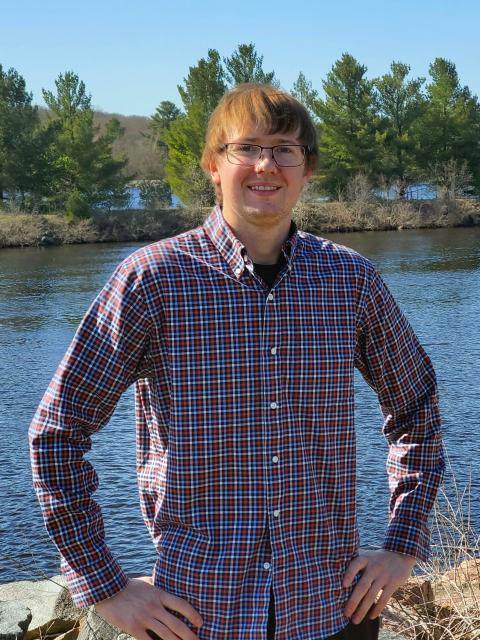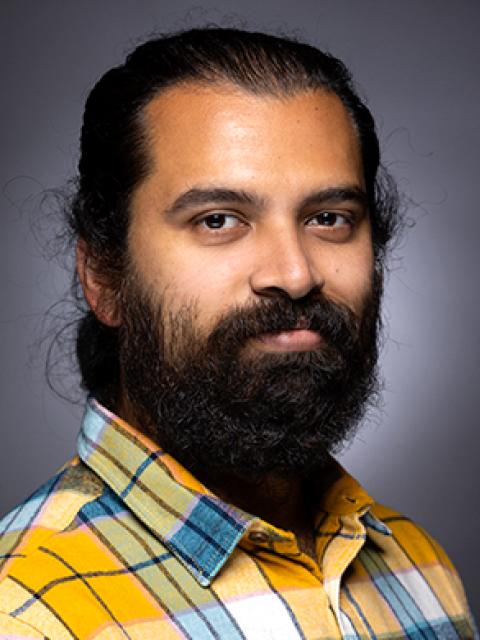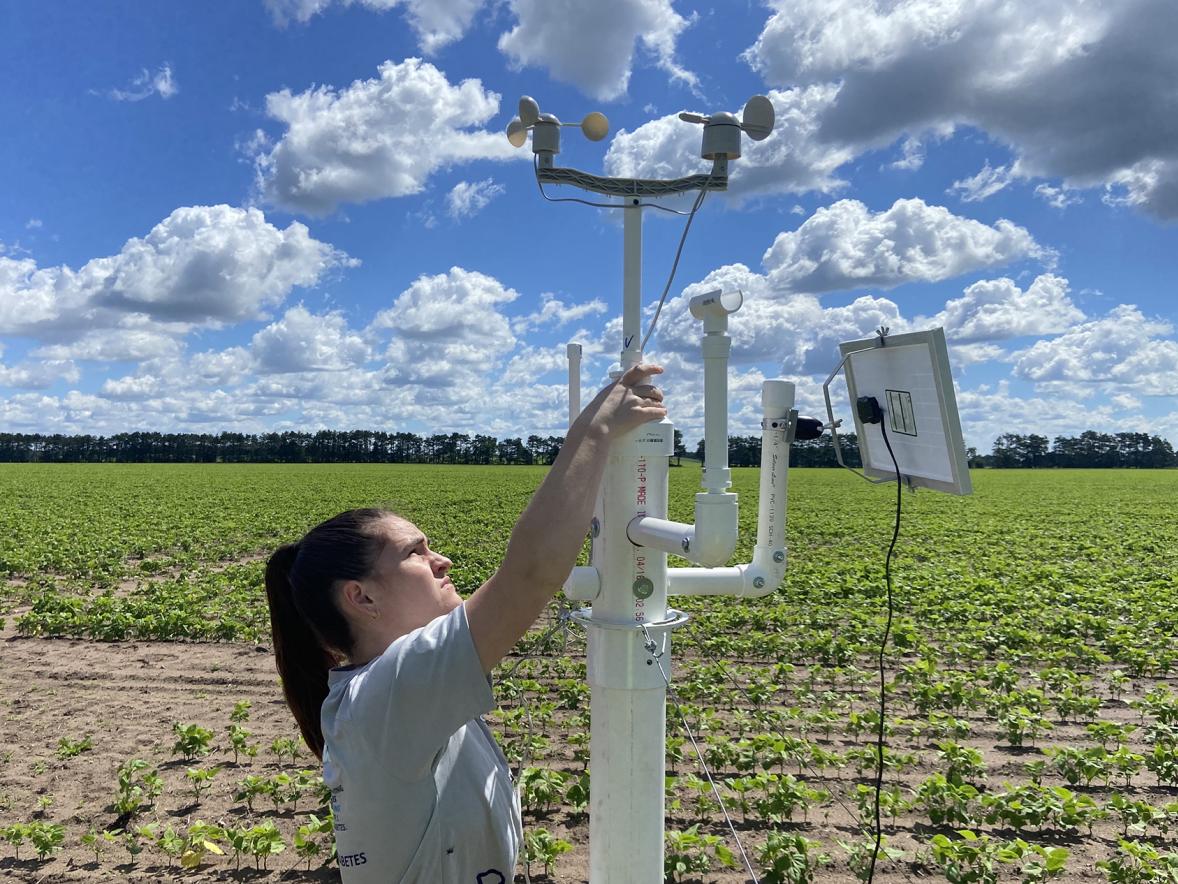When he was in elementary and middle school, William Kunkel struggled with his grades. In high school, he reached a point of frustration where he simply decided that “school wasn’t for me.”
Yet, deep down, despite being dyslexic and the challenges it created with reading, writing and, therefore, memorization and taking tests, Kunkel knew he had ability and refused to be defined by his grades or test scores.
Drawn to the University of Wisconsin-Stout’s applied learning environment, one conducive to his learning style, he decided to put his hunch and intelligence to the true test. Given his track record, he expected to drop out. But on Saturday, May 7, he will graduate with a bachelor’s degree in mechanical engineering, one of 1,105 graduates receiving diplomas.
His story of perseverance only gets better. He is graduating with honors, magna cum laude with a 3.7 grade-point average, and he has been accepted to UW-Madison’s graduate school, where he will pursue a Ph.D. in mechanical engineering.

“If you saw some of my earlier report cards, from when I was younger, you would not think there was any way I would have achieved all that I have and would be pursuing a Ph.D.,” Kunkel said.
“I would encourage anyone who learns differently not to give up, that as long as you understand the concepts you will succeed in higher education. You will be given the opportunity to shine and demonstrate your abilities,” Kunkel said.
A native of Jim Falls, he graduated from Chippewa Falls Senior High School in 2016 and earned a welding certificate in 2017 from Chippewa Valley Technical College — a sign of things to come.
With his kernel of hard-earned self-confidence and individual foresight, he enrolled at UW-Stout and began to soar. “I felt I needed to try (college) because I would regret later in life not trying.”
The university’s academic philosophy, going back to its founding as a manual training school in 1891 by James Huff Stout, has always been classroom learning followed by laboratory experiences, the latter reinforcing the former.
Kunkel received support with test-taking through Disability Services, allowing him special accommodations and more time to read and work through answers and calculations, and he began to shine.
“Once I was at UW-Stout, everything was smooth sailing,” he said.
“In almost every class we get to apply the theory we are learning, especially in our many lab classes. Our fluid mechanics course is a good example. Fluids is very heavy on calculus; it’s used pretty much every day, so that part is theory heavy. But we also have weekly labs where we apply what we learned and get the chance to see the behavior the conservation laws (“equations”) tell us should happen.”

Professors’ support appreciated
Kunkel also benefited greatly from working closely with professors, especially his junior and senior years, whether or not they knew he was dyslexic.
“The support by professors and staff at Stout is just incredible. I sense that they really care and want the students to succeed and to have them reach their goals,” he said.
Kunkel appreciated the opportunity to work on research projects with Assistant Professor Vincent Wheeler, the mechanical engineering program director, and Assistant Professor Abhi Ghosh, that boosted his resume when applying for graduate school. At UW-Madison, Kunkel will have a research assistantship related to additive manufacturing and machine learning.
Kunkel began a research project last fall with Ghosh and will continue this summer. The project took second place in a recent Research Day campus competition.
“Professor Ghosh was incredibly helpful and supportive of my research aspirations and in helping me navigate the graduate school application process. Professor Wheeler also was incredibly supportive; he agreed to supervise an independent study project for me last summer so that I could get research experience before applying to graduate school,” Kunkel said.
After Kunkel expressed interest in graduate school, Ghosh began to work with him.
“The first thing I liked about Will was he knew what he wanted, which was to go to graduate school. He didn't know how to make that happen and asked me, and that's how our work began,” Ghosh said.
Ghosh had worked with Kunkel for several months before learning he was dyslexic. “What I really liked was that he didn't allow others to dictate what he is capable of. While people asked him to go for a welding certificate, he knew he could do better and enrolled in a four-year program,” Ghosh said.
Kunkel is excited about beginning graduate school in Madison while reflecting on a journey at UW-Stout that took him from apprehensive college enrollee to proud graduate and scholar.
“I put myself in an environment where I can excel. My overwhelmingly positive experience with Stout has given me confidence in my academic abilities and the motivation to tackle tomorrow's problems,” he said.
###






